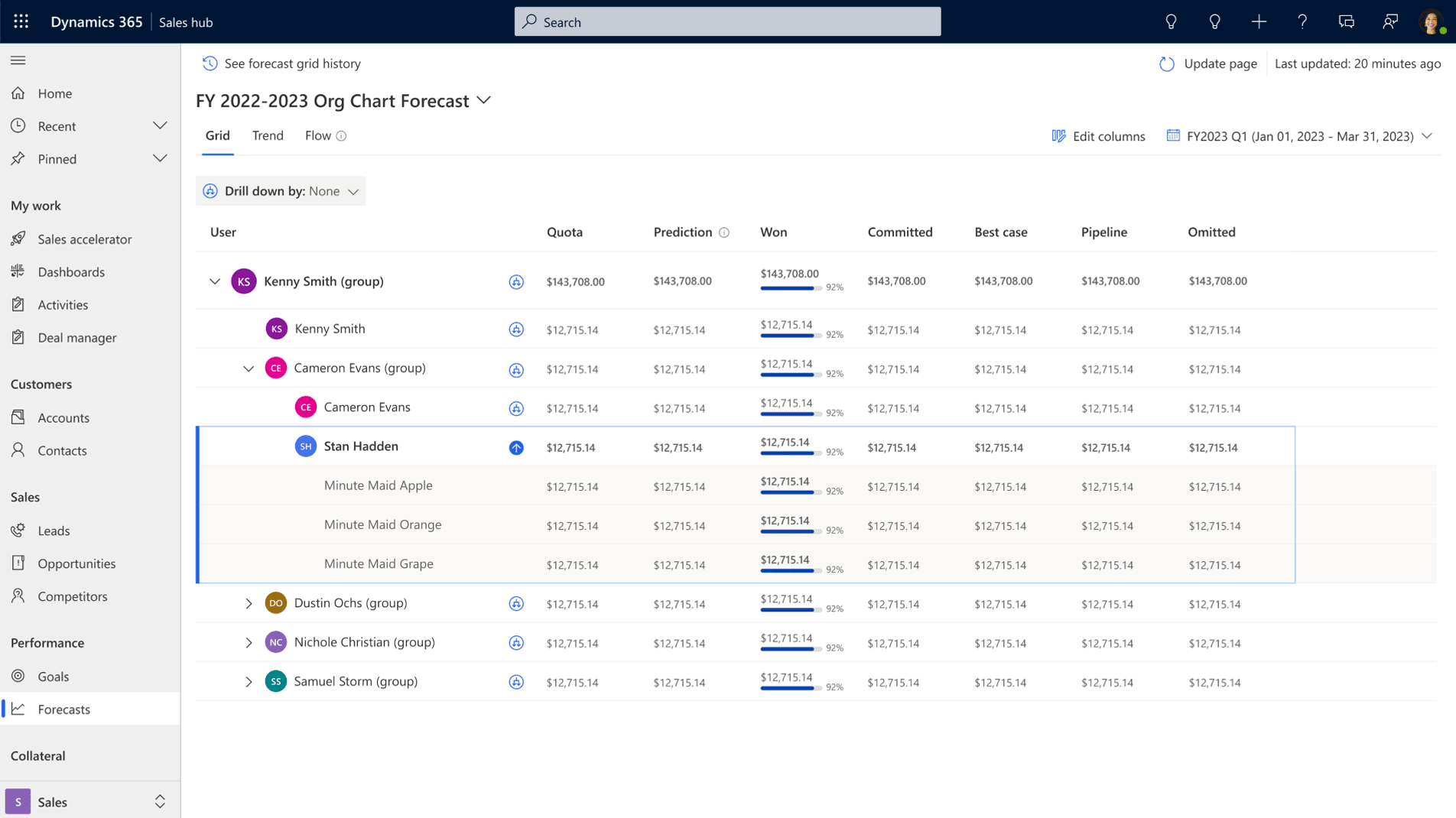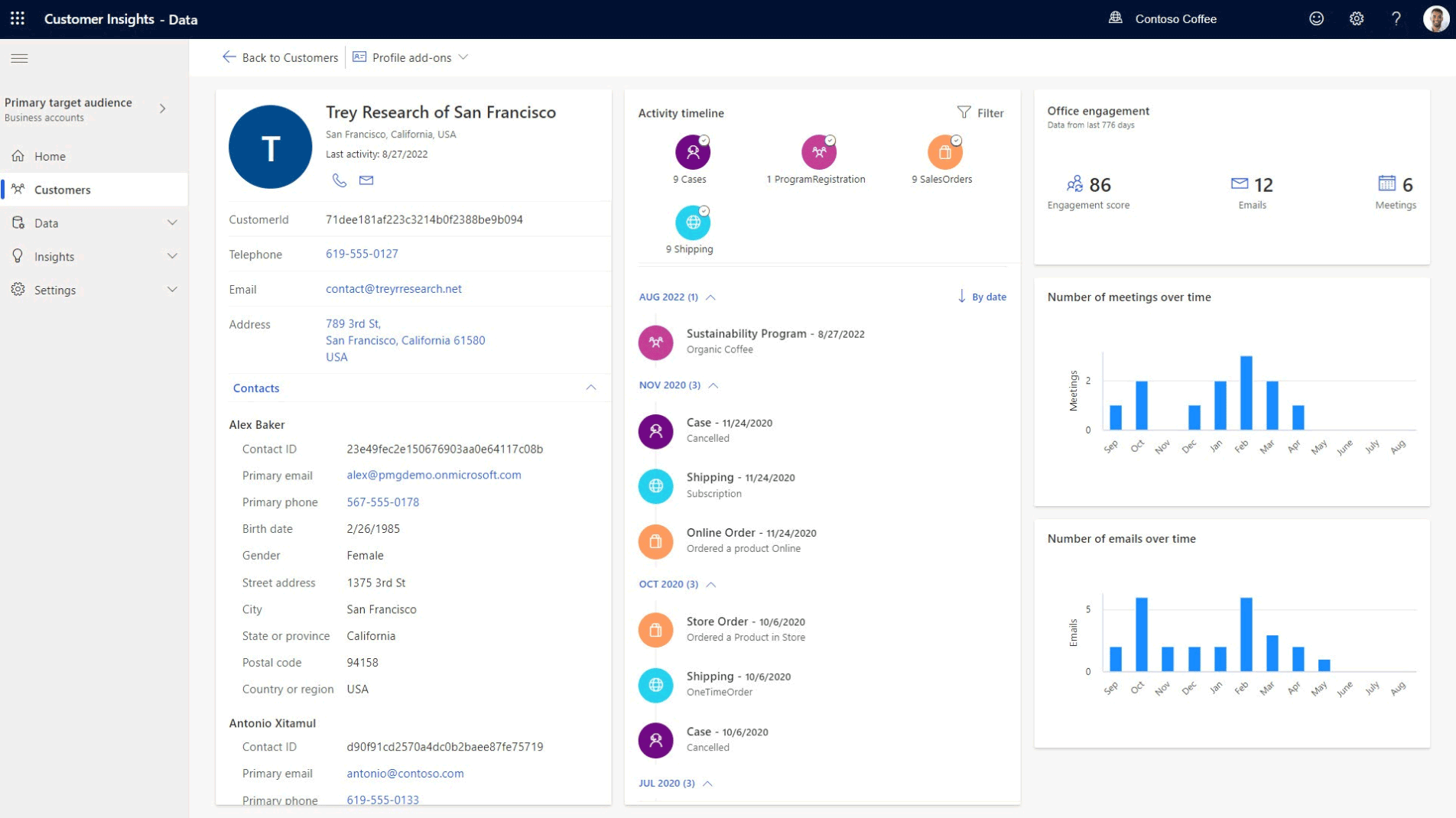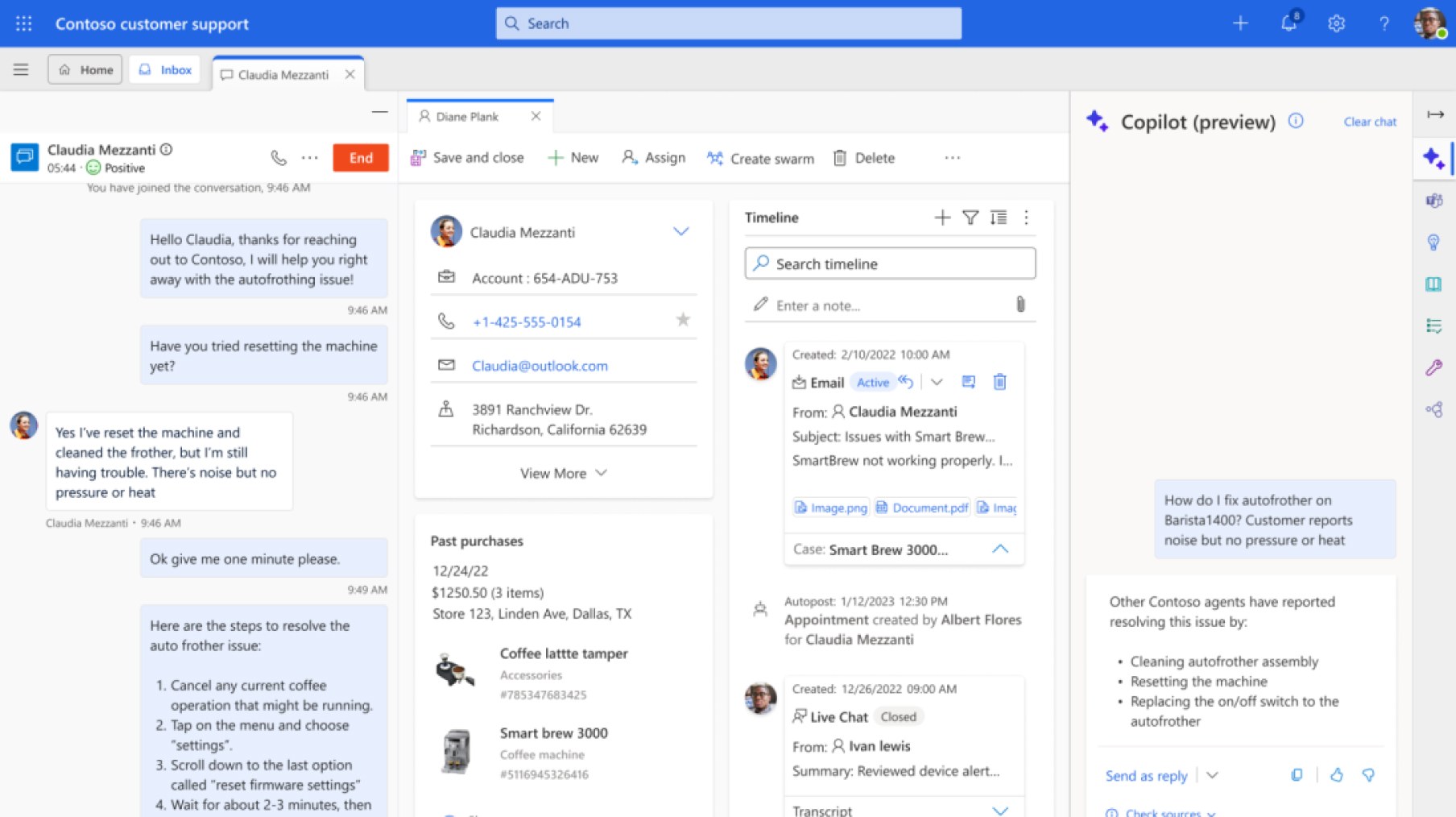By maximizing the potential of Dynamics 365 you can get a complete and unified view of your business, accessing relevant information in real time.
In a world where data and collaboration are key to business success, many companies still face the challenge of integrating their business information, which is isolated in several dispersed systems and with knowledge spread across teams disconnected by hierarchical work silos.
In this article, we explain what is Dynamics 365, Microsoft’s cloud platform of choice for ambitious companies to maximize decision making, collaboration and innovation.
What is Dynamics 365?
In the era of digital transformation, companies have already recognized the immense potential of their data. However, in an ever-changing world, to stay competitive they must now go one step further: it is not only about digitizing their operational processes and integrating their data, but also about connecting teams, systems and business processes effectively.
Dynamics 365 is an intelligent cloud application platform from Microsoft that enables organizations to connect and manage all aspects of the business from one place. Its applications cover the specific needs of several areas, such as sales, marketing, customer service, finance, human resources, among others.
Each application can be used independently or integrated with the others to create a customized solution. This enables, for example, the centralization of all business and customer data in one place, which facilitates process planning and data-driven decision making.
On-demand event: Discover how to use the most advanced Dynamics 365 applications and AI to digitize your operational processes faster.
Key features of Dynamics 365
- Business process flows: Dynamics 365 has visual guides that help users follow the same steps every time they work with a customer or perform a task. Business process flows can be customized according to the needs of each company, adding phases, steps, conditions or branches.
- Automation: In addition, it has the ability to execute actions or tasks without human intervention. Dynamics 365 offers several tools to automate business processes, such as Power Automate, Power Apps, Power Virtual Agents or AI Builder.
- Connectivity: This tool integrates different data sources and devices into a single platform. Dynamics 365 connects with other applications, such as Outlook, SharePoint and Teams in Microsoft 365 and multiple Azure solutions, as well as with other external solutions via connectors. In addition, it integrates with the Internet of Things (IoT), allowing data to be collected and exchanged from interconnected physical devices.
- Analysis: Dynamics 365 offers several tools to analyze data and obtain insights to help improve business processes, such as Power BI, Customer Insights or Sales Insights.
In addition, D365 integrates seamlessly with other Microsoft solutions, such as Power Platform, to extend functionality and customize business processes. This ensures continuity and compatibility with the tools you already use in your business environment.
Discover the potential of Microsoft Dynamics 365 applications
Dynamics 365 Sales: Boost your sales team’s performance
Long and complex sales cycles, customers with diverse needs and the involvement of multiple partners are some of the many challenges faced by sales teams, especially in the B2B sector.
Maintaining these relationships requires effective communication and meticulous follow-up, as well as both internal and external collaboration.
Dynamics 365 Sales is a module designed to enhance the effectiveness of sales teams by automating administrative tasks and simplifying the follow-up of opportunities.
- Increases productivity. Automates administrative and repetitive tasks, freeing up time for the sales team to focus on what they do best: closing opportunities. It also facilitates the tracking of these opportunities by offering a clear view of the entire sales cycle and providing valuable information on performance and customer behavior to adjust strategies.
- Improved collaboration. It allows you to share documents, have conversations and schedule meetings with other teams, all from one place. This ensures that information flows smoothly between departments, fostering a more complete understanding of customer needs in order to provide a more efficient response.
- Optimize the sales experience with Sales Copilot. It integrates an artificial intelligence assistant that helps you interact with your customers and prospects in a faster and more natural way. It also allows you to get quick summaries of your lead and opportunity records, catch up on updates, prepare for meetings and get content suggestions for your emails.

Dynamics 365 Customer Insights: Delivering personalized customer experiences
Personalization has become one of the top priorities for companies. Not only because it is what most customers expect, but also because it is what generates the best results.
With Dynamics 365 Customer Insights, you can connect your customers’ data from different sources, such as your website, your social networks or your apps to get to know them better and offer them personalized experiences.
- Create unique and dynamic customer profiles. Incorporate attributes, behaviors, preferences and interactions with your brand that are updated in real time to accurately understand your customers and deliver experiences that adapt to their changing needs.
- Segment and analyze your customers in a personalized way. You can create segments based on factors such as customer lifetime value, propensity to buy, churn risk or satisfaction. You will then be able to target your marketing, sales and customer service strategies more precisely, addressing the specific needs and desires of each customer group.
- Generate actionable and predictive insights. Make better decisions, optimize your marketing, sales and customer service strategies, and deliver personalized and relevant experiences to each customer.

Dynamics 365 Customer Service: Take your customer service to the next level
Microsoft’s latest customer service report claims that 46% of companies still collect information manually from historical customer data. According to the same report, “manually generated information prevails in silos, while automation drives data analysis in integrated systems.”
That is why many ambitious companies have started to opt for tools and solutions that allow them to go a step further in their service.
With Dynamics 365 Customer Service, customer service teams can increase their productivity while customers get faster responses.
- Manage all customer service channels from a single platform. Whether your customers communicate via phone, email, chat, social media or web portals, this tool centralizes the management of all interactions in one place.
- Know your customers and provide the answer they are looking for. You can view all relevant information about your customers, such as their history, preferences and needs to offer a personalized and effective response.
- Resolves queries faster. The tool suggests the best actions, responses and solutions in each case.
- Reduces workload. Customers can solve their own questions and problems through knowledge bases, forums or conversational chatbots.
- Optimize the performance and quality of your customer service. D365 Customer Service displays key success indicators, dashboards and reports that allow you to measure and improve results.

Dynamics 365 connects all your business teams
In addition to sales, marketing and customer service, Dynamics 365 has applications for other business areas.
- Finance: Dynamics 365 Finance maximizes visibility and control of financial operations, automating administrative tasks, facilitating regulatory compliance, generating integrated reports and analysis, and providing recommendations based on artificial intelligence.
- Human Resources: Dynamics 365 Human Resources optimizes human resources programs, improving the employee experience, and facilitating collaboration and learning.
- Supply Chain: With Dynamics 365 Supply Chain Management you can optimize the planning, production, inventory, warehouse and transportation of products, using IoT sensors, predictive maintenance and mixed reality.
- Project Management: Dynamics 365 Project Operations allows you to manage the entire lifecycle of your projects, from sales to billing and accounting. In this way, you can plan and estimate work, allocate and mobilize resources, monitor and control progress and costs, bill and charge for services rendered, and integrate processes with other Microsoft applications.
Looking to accelerate innovation with a hyper-connected enterprise? As Top Partnert Cloud Microsoft, Softeng help companies with digital ambition to connect their data, processes and equipment with intelligent business applications so they can drive innovation and solve their specific needs.
Find out more here
Event on demand: If Dynamics 365 has sounded interesting to you, don’t miss our on-demand event, where our experts share success stories and demos on how to leverage the most advanced Dynamics 365 applications and AI to digitize operational processes faster and improve business efficiency. Access from here!










